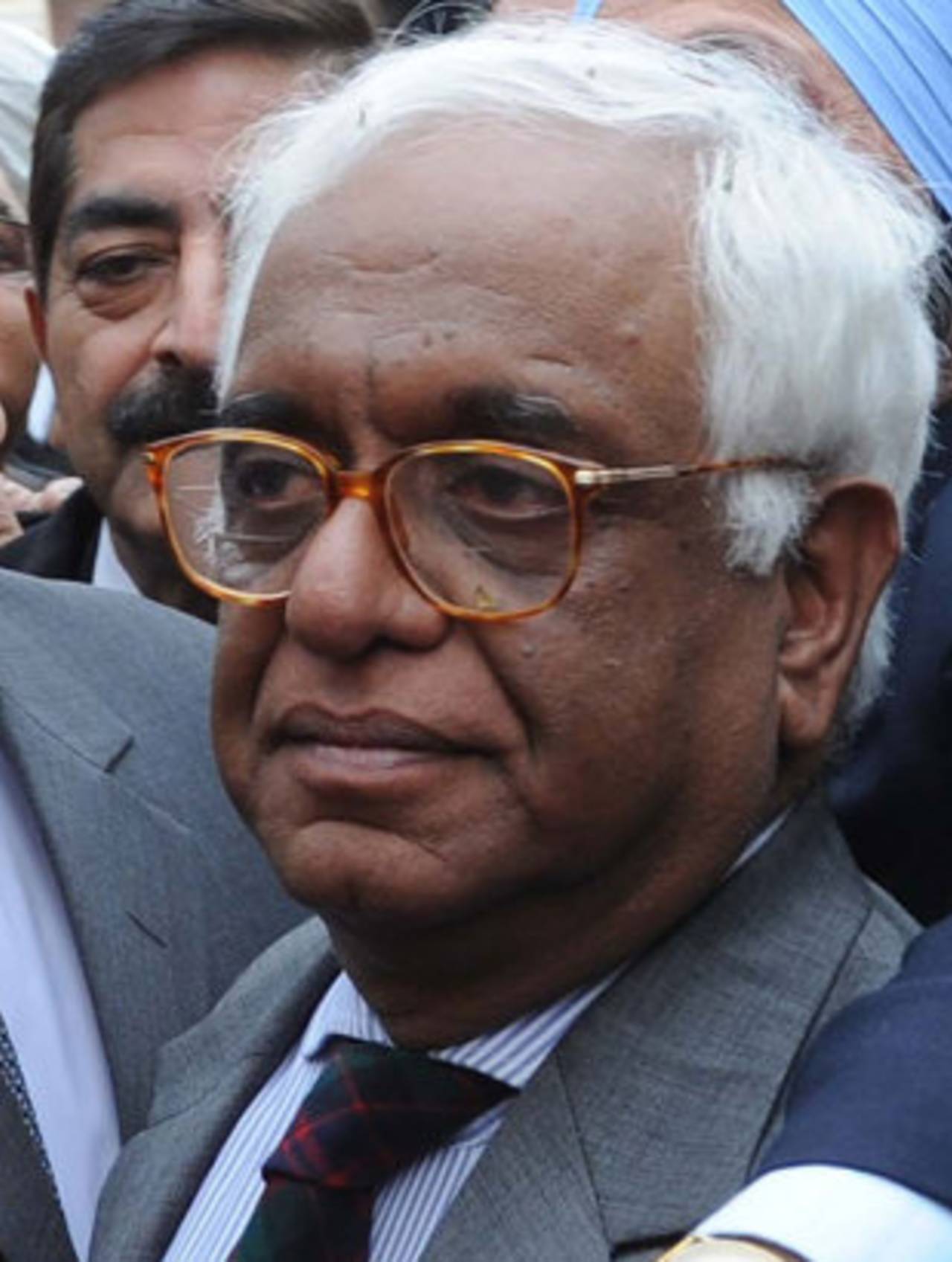The man who made the BCCI answerable
Mukul Mudgal is the judge who in 2001 made the BCCI liable to writ petitions and is also involved in formulating two key pieces of sporting legislation that could have a direct impact on cricket
Sharda Ugra
08-Oct-2013

Justice Mukul Mudgal had held in 2001 that the BCCI was amenable to writ jurisdiction as it represented India • AFP
Justice Mukul Mudgal, who heads the Supreme-Court-appointed three-man probe committee to re-examine allegations of betting and spot-fixing in IPL 2013, happens to be the judge who made the BCCI directly answerable to writs admitted to higher courts in India.
In September 2001, Mudgal, a Delhi High Court judge at the time, ruled that the BCCI could not be called a private body, and therefore was not liable to challenge writ petitions filed against it, like it had done in the case of former India cricketer Ajay Jadeja, who had protested his five-year ban imposed after a 2000 investigation into betting and match-fixing. Mudgal's 18-page judgement cited several reasons why the BCCI represented India, which had made it "amenable to writ jurisdiction." It is the legal predecent due to which all writ petitions against the BCCI are now admitted into Indian high courts and the Supreme Court.
Mudgal began his legal career in the Delhi High Court in 1973 and formally retired as chief justice of the High Court of Punjab and Haryana in 2011. As advocate and judge, his links with sports litigation have remained strong. In the 1980s, he won record damages for India's national table tennis champion and Asian Games medallist V Chandrasekhar after a faulty surgery led to the athlete being in a near-coma state for over a month and suffering considerable neurological impairment that ended his playing career. Mudgal was the advocate on record for a legal team that won a 1989 Supreme Court case against the BCCI filed by six cricketers (including Dilip Vengsarkar, Kris Srikkanth, Kapil Dev, Ravi Shastri, Kiran More and Arun Lal) banned for playing unofficial cricket in North America.
Currently, Mudgal, a member of the Court of Arbitration for Sport in Lausanne, is involved in formulating two key pieces of sporting legislation that could have a direct impact on cricket. One is the National Sports Development Bill, which aims to make sports administrators answerable to the public and the government and the second is the Prevention of Sporting Fraud Bill, which gained more traction following the IPL corruption scandal in 2013.
The National Sports Development Bill seeks to bring ethical governance into Indian sports administration, through restrictions on age and tenure of office bearers as well as bringing sports federations under the Right to Information Act (RTI). The exercise of the RTI in sport will requires all national sports federations to be answerable to the public in regard to their governance and accounting. The BCCI rejects the bill primarily due to its unwillingness to fall under the RTI stating that as it is registered as a private body, it remains not answerable to the public.
As chairman of the National Sports Development Bill draft committee, Mudgal's drive to overhaul sports administration India has been met with bitter resistance by all sporting bodies, including the BCCI. In 2011, he was independent advisor to the Lord Woolf committee set up for a governance review of the ICC's functioning, whose recommendations were "rejected" by the BCCI working committee.
When asked about the Supreme Court court's suggestion on Monday that he head a new panel to investigate the IPL corruption scandal, Mudgal joked to a newspaper, "I don't think the BCCI will be very keen to have me on the panel." He would not comment on the "current state of cricket administration."
Mudgal's involvement in civil, constitutional and labour law as well as public interest lititgation spans more than four decades and includes landmark judgements against sexual harassment in the workplace and those favouring prison reform and the rights of the underprivileged. His acquaintances say the dictum of "what is correct is correct" applies in Mudgal's court.
A collegiate athlete, Mudgal calls himself a hardcore cricket fan and is reported to have watched a Test between India and the West Indies on his feet for all the five days. Every time he got to the Kotla, he found that all seats were taken. In a few days time, when the Mudgal-led probe committee begins its inquiry into IPL corruption, the world of cricket will, metaphorically at least, be packed into the aisles.
Sharda Ugra is senior editor at ESPNcricinfo